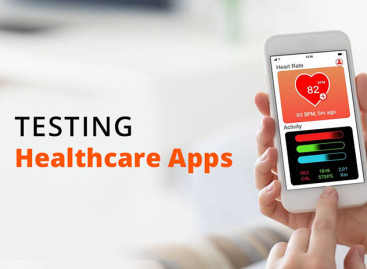- QATestLab Blog >
- QA for Business >
- Why Software Testing is the New Black for Renewable Energy
Why Software Testing is the New Black for Renewable Energy

Not long ago, the idea of renewable energy has taken the world by storm, while now the primary focus lies on the digitization of this sector. The recently developed concept “Energy 4.0” stands for the full-scale technological changes, including but not limited to the development of smart grids, and modernization of energy distribution networks. Undoubtedly, this new disruptive approach requires full support from Software Testing & QA visionaries and practitioners.
The central purpose of this article is to outline the role of software testing in the renewable energy sector. It also briefly explains renewable energy as part of the sustainable development, the industry demands that resulted in the growing need for digital transformation, and the core aspects of the digitization of this domain.
Why Renewable Energy is Important
The rise of renewable energy is caused both by the effects fossil fuels have on the environment and the fact they are about to run out. Stimulating the growth of renewable energy use is one of the UN goals towards their world sustainable development vision. According to their reports, its share in the world’s total energy consumption increased marginally (from 16.6% in 2010 to 17.5% in 2016), especially the contribution to the electricity sector. However, a much faster change is required to meet climate goals.
Apart from a reduction in the amounts of emitted air pollutants, renewable energy generation technologies also provide an economic benefit due to their significant application scope. Renewables are appropriate for industrial, commercial, and residential use. On this basis, their profitability already fosters increased investment interest. They have a zero short-run marginal cost, meaning this kind of energy comes free, while expenses are required only to capture it (which is not valid for oil and gas). This sector also creates new jobs, as large budget parts now are spent on craftsmanship to build and maintain facilities rather than on costly energy imports.
Yet, there are significant challenges on the path of renewable energy integration into electrical power systems. Particularly, grid load balance and the management of a complex system that in this case consists of a multitude of decentralized power generation units instead of a few large power plants. Without a doubt, digital transformation is key to coping with these challenges.
Digitizing Renewable Energy
Given that the rapidly growing renewable energy sector is moving towards digitization, the market leaders have already merged the latest digital advancements into this process. In fact, there are estimates that approx. 40% of existing companies will disappear in 10 years if fail to implement the digital change in a timely manner.
Digital transformation brings valuable changes to businesses. It enables better decision making, costs reduction via generating autonomous systems, improves connectivity, as well as provides digital access for the client to guarantee full transparency and immediately available services.
The list of advantages the inevitable digitization brings to the renewable energy sector includes the following:
- Smart grid technologies enable the larger share of renewables to be included in an electricity system, while also providing a more efficiently operated electricity system and reduced operational expenses;
- Expanded connectivity is driving demand for transparency among consumers, empowering sustainable data management;
- Automation of multiple processes allows maintain control over wind and solar farms remotely;
- Real-time monitoring of the operations, including control over each device, ensures efficiency and cost-effectiveness;
- Surveillance, risk prevention, and continuous monitoring enable immediate repairs & maintenance.
Independent Software Testing
A test engineer is an IT professional in charge of test activities, including designing test inputs, producing test case values, running test scripts, as well as analyzing and reporting results to developers. Modern testing methodologies allow assessing software with respect to the specified requirements, architectural / subsystem / detailed design, and implementation. Due to the industry development advancements, testing is no more just a technical activity, but a mental discipline aimed at increasing quality and improving the developers’ ability to produce better software. This unique mindset enables test engineers to become project technical leaders.
The common tendency among software developers and those implementing digital solutions is a collaboration with interdependent software testing providers. Among the benefits they offer for businesses, there is superior proficiency of the team and a wider range of available testing types, less management effort, cost reduction on the failure rates, flexible cooperation, no extra expenditures on maintaining in-house team and costly devices, faster turnaround, and reduced time to market.
Software Testing and the Renewable Energy Industry: The Overview
The holistic approach to digital transformation allows coping with the unpredictability and instability of renewable energy sources. Better ways of energy production, distribution, and consumption require disruptive digital solutions, so the importance of software testing and quality engineering services become indispensable for this scenario.
- Software testing & QA are crucial for maintaining the desired scalability, speed, and stability indexes, as well as ensuring efficient handling of load and stress by software.
- Smart grid testing covers simulations, network performance, cybersecurity, integration, reliability, and resilience. The possibility to perform simulations is especially significant as they allow to model power and data flow between hardware and virtualized devices. They also enable observing interactions between components during the power and data exchange.
- Security testing solutions allow uncovering security vulnerabilities, particularly necessary due to the rise of IoT and widespread implementation of SCADA (Supervisory Control and Data Acquisition) networks.
- While Big Data analytics allows making renewable energy power generation forecasting more accurate, QA service assures effective migration and resourcing of data, as well as database, infrastructure, performance, and functional testing.
- The communication tools should be validated according to the desired performance, functionality, and user-experience qualities to assure the favorable industry & brand perception.
Let Us Help You!
Software testing requires a combination of expertise and the ability to think out-of-the-box. We have both. And we are ready to provide superb testing solutions to the challenges brought about by the digital change in your industry.
To get more information about Software Testing & QA, check out our services or chat with us right away!
Learn more from QATestLab
Related Posts:
About Article Author
view more articles







No Comments Yet!
You can be the one to start a conversation.